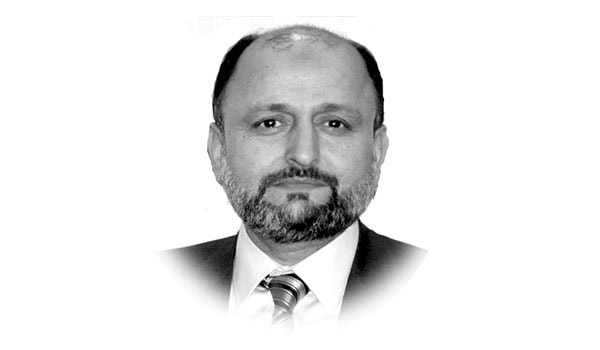Talent management
PAKISTAN surprises the global community quite often with deep-rooted astonishing dynamics of the society.
Recent survey by Gallup & Gilani Pakistan suggested that a huge majority of 70% of Pakistanis feel connected to the country and prefer to stay in Pakistan even if given the good opportunity to leave Pakistan.
However, there is a reasonable percentage of young educated but unemployed Pakistanis who opted to quit the country.
In the month of April this year, respondents were asked the question, “If someone gives you important papers, accommodation and employment in a developed country, would you consider going/or would reject the offer and prefer to stay in Pakistan?
” In response to this question, 26% said move abroad, 70% said stay in Pakistan and 4% didn’t know or gave no response.
Despite several challenges, extensive inflation, restricted access to basic amenities, long hours of load-shedding, rising unemployment, encounters of extremism and volatile political environment, still Pakistanis feel connected to the country and prefer to stay in Pakistan.
They not only preferred to stay in the country but also feel secure in their homeland even with all vulnerabilities.
This disproves widespread allegations of disloyalties from one faction of the society to another.
Now, I think, we all should learn to respect loyalties of every Pakistani to the motherland.
Interestingly, almost double of the global average of Pakistanis feel secure about their future, while 68% of Italians and 41% Finns feel insecure.
It is indeed attention-grabbing to notice that countries ranking high in global prosperity index failed to inculcate sense of security among their population while a country ranked 140 in the global prosperity index has shown connectedness among masses and confidence about their secure future.
It certainly suggests strength of the social structure of the Pakistani society. There is always a hue and cry about the brain drain from Pakistan and data also supports these concerns.
A report suggests, “During 2018-19 in the two years alone, some 884,000 young Pakistanis left the country, according to the official registrations at the Bureau of Emigration.
The record indicates more than 300,000 Pakistanis left the country in 2018. The figure soared to 500,000 in the following year.
” Analysis such as these usually misguide masses, on one hand portraying bleak picture of the society while on the other celebrating remittances from foreign destinations as a strong contributor to the GDP of the country.
Technically brain drain is the emigration of highly trained or qualified people from a particular country.
In case of Pakistan, the same report indicates that only around 46,000 highly educated/trained Pakistanis decided to leave Pakistan in the same period which is indeed a great loss to the nation but our reports never report those who comeback to Pakistan from foreign destinations to serve their motherland.
This inflow and outflow of highly educated/trained human capital is the indication of vibrant society but we usually look at the weak side of the pattern.
Recent findings of subject survey clearly eliminates the perception that majority of the population prefers to leave Pakistan.
It also emphasises the need of talent management in the country to strengthen both public and private sectors of the society.
James Intagliata and his colleagues suggest, “When you don’t know what the future will bring, how do you figure out who has — or can acquire — the right strengths to meet those challenges?
Past performance doesn’t tell you who can do things they haven’t done before. It also doesn’t help identify high potentials earlier in their career.
Leadership potential is not grounded in achievements but in observable and measurable behaviours.
Drawing on a database of more than 23,000 candidate assessments for roles at public and private companies, and in-depth analysis of 1,500 individuals, from entry-level professionals to senior leaders three psychological markers have been isolated that can reliably predict individuals’ ability to grow and handle increased complexity in new roles including cognitive quotient (CQ): how they leverage their intellect, drive quotient (DQ): what motivates them and how they apply their energy, and emotional quotient (EQ): how they interact with those around them.”
I think it is equally important to look at academic transcripts and professional credentials along with field specific tests to determine intellectual abilities for particular positions.
However, considering drive and emotional quotients can certainly help organizations attract people who can give their heart and soul to the task and the objective.
If we are losing people despite such a high connectedness with the homeland it means there is a flaw in the overall design of our job market.
Drive quotient enables and individuals not just to maximize their own performance but to develop and leverage the capabilities of others.
Drive is linked with passion for progress, for achievement, for excellence and most importantly a triumph for the self and for the group.
Once we are able to channelise DQ of people towards appropriate direction they can convert every challenge into a thriving opportunity for the success of their own and those around them.
James Intagliata and his colleagues further suggest, “People with high DQ push past their comfort zones and attack new challenges with relish.
They are also resilient: When they experience a setback, they reset and reframe and try again.
Most importantly, they continually strive to improve not just as individuals, but to amplify results at organizational level.
” Our connectedness with motherland coupled with talent management beyond academic abilities can enable our dynamic human capital in engaging for impact, utilising their intellect to solve for right problem, getting along with the people and making it possible to overcome every obstacle to achieve what is required for prosperous national progress.
—The writer is Associate Professor Management Sciences, Head, Centre of Islamic Finance, COMSATS University (CUI) Lahore Campus.










